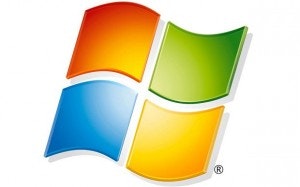Investors have likely noticed the pronounced outperformance of Microsoft Corporation (NASDAQ:MSFT) shares over the past several weeks. Indeed, shares have rallied more than 20% just since mid-January. Long derided as being ‘dead money’ and a boring technology giant starved for innovation, Microsoft Corporation (NASDAQ:MSFT)’s share price performance in only a few months’ time is more indicative of a start-up in high growth.

Beneath the excitement, however, is a disturbing lack of a suitable catalyst for such a rally. Should investors jump on the train? Or would investors be better served putting the uptrend under a microscope for further analysis?
Console mania in perspective
Presumably, a significant catalyst behind the rally in Microsoft Corporation (NASDAQ:MSFT) shares has to do with the likely revelation of a new Xbox video game console during a company event to be held May 21. It’s been eight years since the last new Xbox console release, so investors and video game fans alike are likely excited by the recent developments.
Fellow console maker Sony Corporation (ADR) (NYSE:SNE) is on a similar trend. After trading for less than $10 per share as recently as last December, the developer of the popular PlayStation console has rallied 70% in just a few months to its recent level of $17 per share.
Sony Corporation (ADR) (NYSE:SNE) released its PlayStation 3 device in the fall of 2006, and not wanting to be outdone by its closest competitor, will likely release a PlayStation 4 console around the same time of Microsoft Corporation (NASDAQ:MSFT)’s new release.
Curb your enthusiasm
Microsoft shares are in a clear uptrend, but for both video game enthusiasts and investors, the excitement surrounding new video game consoles needs to be put in the proper context.
Microsoft’s Entertainment and Devices Division is the business segment responsible for developing and producing the Xbox console. This division saw 35% revenue growth in 2006 and 28% revenue growth in 2007, thanks to the newly released Xbox 360.
However, it’s worth noting that Microsoft Corporation (NASDAQ:MSFT)’s Entertainment and Devices Division actually reported operating losses in both 2006 and 2007. That means that unfortunately, the Xbox itself was not a profitable venture for Microsoft when the last new console was released.
Furthermore, even in 2006 and 2007, the Entertainment and Devices Division accounted for less than 11% of Microsoft’s total revenue. And in fiscal 2012, the division made up just 13% of total revenue. To be blunt, the Xbox console is a drop in the bucket.
What really matters for Microsoft
A new video game console generates a lot of buzz from the media, for obvious reasons. However, for all intents and purposes, the Xbox just doesn’t matter for Microsoft.
What does matter are the products and services that comprise the backbone of Microsoft Corporation (NASDAQ:MSFT)’s business. Microsoft has three core segments which in total comprised 83% of the company’s fiscal 2012 revenue: Microsoft Business Division; Servers and Tools; and Windows & Windows Live Division. These three divisions dwarf the Entertainment and Devices numbers.
In short, if you’re buying Microsoft stock, you aren’t buying the Xbox business. You’re buying Windows, Office, and the company’s server operations, and those are the segments you need to pay attention to going forward.
Focus your video game excitement on the right stock
If you’re truly interested in profiting from the next generation of video game consoles, you’d be better served considering specialty retailer GameStop Corp. (NYSE:GME). GameStop not only sells new video game hardware and software, but also conducts a used-game and hardware trade-in business that is extremely profitable for the company.
If the new generation of consoles really matters to any one company, it’s GameStop and not Microsoft. In addition, GameStop Corp. (NYSE:GME) has recently begun a strong commitment to rewarding its shareholders with a generous dividend policy. Since instituting a $0.15 quarterly dividend in fall 2012, GameStop has bumped up its dividend twice. The annualized payout of $1.10 per share amounts to a yield of roughly 3.2% at recent prices, which exceeds Microsoft’s current dividend yield.
The new generation of consoles, games, and accessories, plus the flurry of used-game trade-ins will provide just the catalysts needed to propel GameStop Corp. (NYSE:GME) in the future. While Microsoft is a highly profitable company, investors specifically interested in capitalizing on the next generation of consoles would be well advised to consider GameStop instead.
The article To Capitalize on the Next Xbox, Don’t Buy Microsoft originally appeared on Fool.com and is written by Robert Ciura.
Copyright © 1995 – 2013 The Motley Fool, LLC. All rights reserved. The Motley Fool has a disclosure policy.

